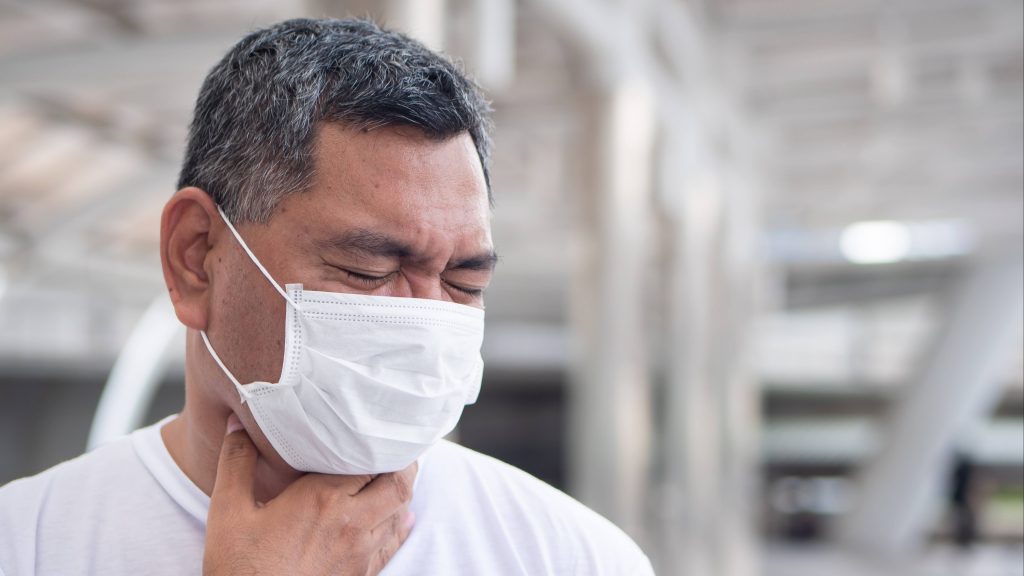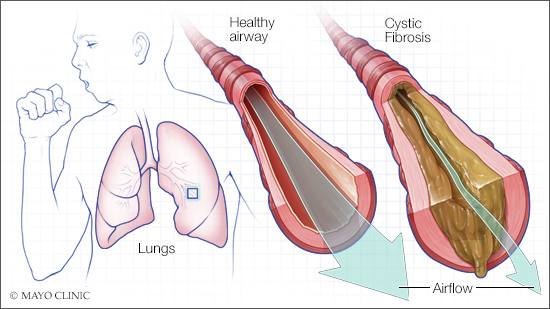
An estimated 30,000 people are living with cystic fibrosis in the U.S. This genetic disease can cause progressive lung damage and recurrent episodes of lung infections in many who are affected. Understanding the effects of COVID-19 is critical to patients with cystic fibrosis as this worldwide pandemic continues.
"Cough and shortness of breath, which are common signs of COVID-19 infection, also occur frequently in patients with cystic fibrosis. This overlap of symptoms can certainly raise a patient's concern about a possible COVID-19 infection," says Dr. Margaret Johnson, a Mayo Clinic pulmonologist.
The susceptibility of patients with cystic fibrosis to COVID-19 is not fully understood, but Dr. Johnson says a limited number of cases have been reported so far. And most cystic fibrosis patients who contracted COVID-19 have recovered without hospitalization.

As the pandemic continues, Dr. Johnson says more is being learned about the effects of COVID-19 and the potential long-term implications to patients with cystic fibrosis and other lung diseases.
"We are beginning to understand that COVID-19 may cause long-term lung scarring. For patients with cystic fibrosis or other lung damage, this can further intensify existing damage and make it even more difficult for oxygen to get into their tissues," says Dr. Johnson.
Although it is common practice for patients with cystic fibrosis to wear a mask in many settings, maintain social distancing and practice excellent personal hygiene, Dr. Johnson says patients with cystic fibrosis should remain vigilant regarding safety matters to slow the spread of COVID-19.
"I would recommend many cystic fibrosis patients also consider limiting guests in their home and continuing to avoid indoor restaurant dining," she says.
Also, since cystic fibrosis can affect many organ systems, Dr. Johnson strongly recommends that if patients have not previously established care with an accredited cystic fibrosis center, they should do so.
"Cystic fibrosis is a complex disease that affects each person living with it differently. Therefore, it is important for patients with cystic fibrosis to maintain strong bonds with a qualified care team so that new or changing symptoms can be addressed, particularly if they may be related to a COVID-19 infection," she says, adding that Mayo Clinic is among the 150 centers in the U.S. accredited by the Cystic Fibrosis Foundation.
Over the past few years, many advances have been made in the care of patients with cystic fibrosis, including new medications that have been incredibly effective for many people. "It is not at all a stretch to call the new medical therapy a real game-changer. Now is a great time to establish care with an accredited cystic fibrosis center and connect with health care professionals who can help you stay healthy," says Dr. Johnson. "This is particularly important as we continue to deal with the COVID-19 pandemic."
Visit the Cystic Fibrosis Foundation care page for more information about accredited cystic fibrosis centers.
Information in this post was accurate at the time of its posting. Due to the fluid nature of the COVID-19 pandemic, scientific understanding, along with guidelines and recommendations, may have changed since the original publication date.
Check the Centers for Disease Control and Prevention website for additional updates on COVID-19. For more information and all your COVID-19 coverage, go to the Mayo Clinic News Network and mayoclinic.org.







